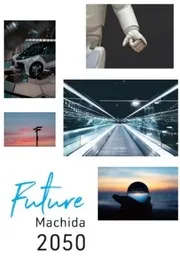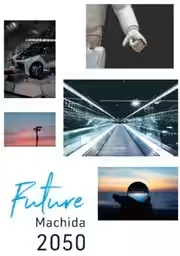

Exploring Sustainable Urban Development: Machida's Future from 2025 Research Study
Machida's Journey Towards Sustainability
On June 18, 2025, the Machida City Institute for Future Development, led by director Hiroo Ichikawa, announced a new research initiative centered around the theme of building a sustainable city. The purpose of this study is to define what a sustainable city means for Machida, analyze its current status, identify challenges, and examine successful cases from other cities, ultimately suggesting specific measures tailored to the unique characteristics of Machida.
Objectives of the Research
Machida faces several pressing issues including a declining working-age population, increasing social security costs due to aging demographics, and dwindling tax revenues. These challenges pose significant risks to the city's financial stability. Reports such as the 'Machida Future Development Vision 2040' and the 'Machida City Future Urban Research 2050' have raised concerns about potential budget deficits and the city becoming financially unviable. Therefore, transitioning Machida from a mere commuter town to a thriving, sustainable city is crucial.
The primary goal of this research is to provide concrete proposals for Machida to become a sustainable urban environment.
Overview of the Research
1. Defining “Sustainable City”: The study will begin by defining what a sustainable city means specifically for Machida, using previous research findings and existing literature.
2. Investigative Analysis of “Sustainable City”:
- Industrial Attraction Survey: This involves gathering information on external conditions that may positively impact Machida's industry, focusing on adjacent regions and railway lines. Additionally, an internal survey will assess resources available within Machida that can be utilized for industrial development.
- Transformation of Community Functions Survey: The study will compile essential data on local communities, including number of units, years of completion, and household statistics. Furthermore, it will review the city’s plans and policies regarding these neighborhoods, conducting interviews with relevant departments to clarify current challenges.
3. Success Factors Analysis and Case Studies: The research will delve into case studies from other cities to identify success factors and lessons learned.
4. Expert Hearings: To shape effective solutions, the study will include input from experts through hearings.
5. Evaluation of Effective Methods: Based on the research results, the proposed strategies will be assessed on their impact and feasibility, leading to prioritized recommendations.
6. Specific Policy Proposals: The study will present concrete measures designed to enhance local tax contributions and stimulate the regional economy while working under certain assumptions.
7. Information Dissemination: Throughout the research, updates and findings will be shared regularly to keep the community informed.
8. Research Outcomes Presentation: There will be an opportunity to present research findings through a public forum to encourage community engagement, along with creating summary documents for broader distribution.
Proposed Timeline
The research is expected to follow the timeline outlined below:
- - May: Definition of a sustainable city and preliminary analyses.
- - June - August: Ongoing evaluation and community assessments.
- - September: Completion of success factor analyses and expert discussions.
- - November - December: Review and proposal of specific measures.
- - January - March: Finalization of research outcomes and public presentation.
The Machida City Institute for Future Development is dedicated to not only analyzing the current state of the city but also actively working on strategies for a sustainable future that benefits both its residents and the environment. This research initiative marks an important step in redefining Machida, ensuring it evolves into a model of sustainability for future generations.


Topics Policy & Public Interest)










【About Using Articles】
You can freely use the title and article content by linking to the page where the article is posted.
※ Images cannot be used.
【About Links】
Links are free to use.